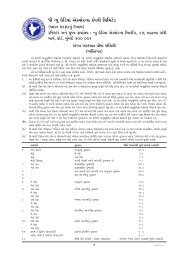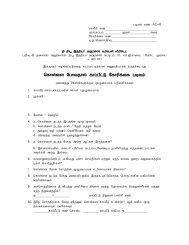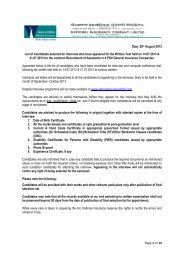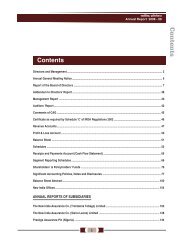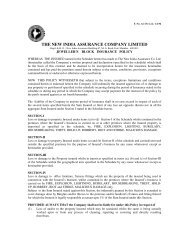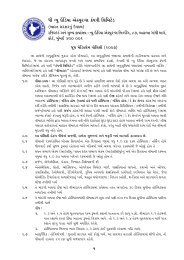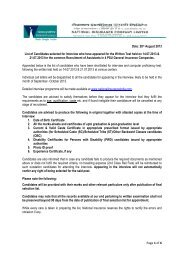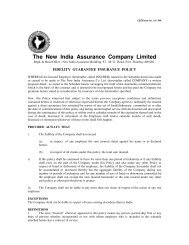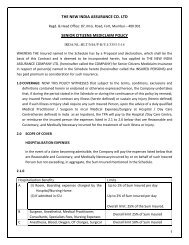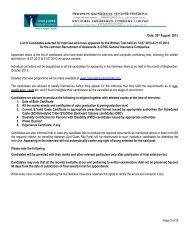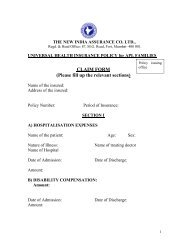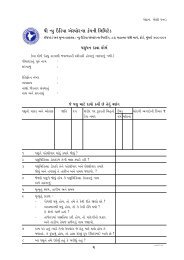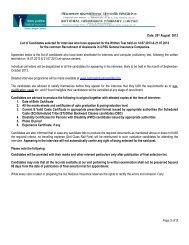Property_Manu - Final - The New India Assurance Co. Ltd.
Property_Manu - Final - The New India Assurance Co. Ltd.
Property_Manu - Final - The New India Assurance Co. Ltd.
You also want an ePaper? Increase the reach of your titles
YUMPU automatically turns print PDFs into web optimized ePapers that Google loves.
<strong>The</strong> <strong>New</strong> <strong>India</strong> <strong>Assurance</strong> <strong>Co</strong>.<strong>Ltd</strong>.24. A change in an accounting estimate may affect the current period only or both the currentperiod and future periods. For example, a change in the estimate of the amount of baddebts is recognized immediately and therefore affects only the current period. However, achange in the estimated useful life of a depreciable asset affects the depreciation in thecurrent period and in each period during the remaining useful life of the asset. In both cases,the effect of the change relating to the current period is recognized as income or expense inthe current period. <strong>The</strong> effect, if any, on future periods, is recognized in future periods.25. <strong>The</strong> effect of a change in an accounting estimate should be classified using the sameclassification in the statement of profit and loss as was used previously for the estimate.26. To ensure the comparability of financial statements of different periods, the effect of a changein an accounting estimate which was previously included in the profit or loss from ordinaryactivities is included in that component of net profit or loss. <strong>The</strong> effect of a change in anaccounting estimate that was previously included as an extraordinary item is reported asan extraordinary item.27. <strong>The</strong> nature and amount of a change in an accounting estimate which has a material effectin the current period, or which is expected to have a material effect in subsequent periods,should be disclosed. If it is impracticable to quantify the amount, this fact should be disclosed.CHANGES IN ACCOUNTING POLICIES28. Users need to be able to compare the financial statements of an enterprise over a period oftime in order to identify trends in its financial position, performance and cash flows. <strong>The</strong>refore,the same accounting policies are normally adopted for similar events or transactions ineach period.29. A change in an accounting policy should be made only if the adoption of a differentaccounting policy is required by statute or for compliance with an accounting standard or ifit is considered that the change would result in a more appropriate presentation of thefinancial statements of the enterprise.30. A more appropriate presentation of events or transactions in the financial statements occurswhen the new accounting policy results in more relevant or reliable information about thefinancial position, performance or cash flows of the enterprise.31. <strong>The</strong> following are not changes in accounting policies:(a)the adoption of an accounting policy for events or transactions that differ in substancefrom previously occurring events or transactions, e.g., introduction of a formalretirement gratuity scheme by an employer in place of ad hoc ex-gratia paymentsto employees on retirement; andMANUAL ON PROPERTY77



